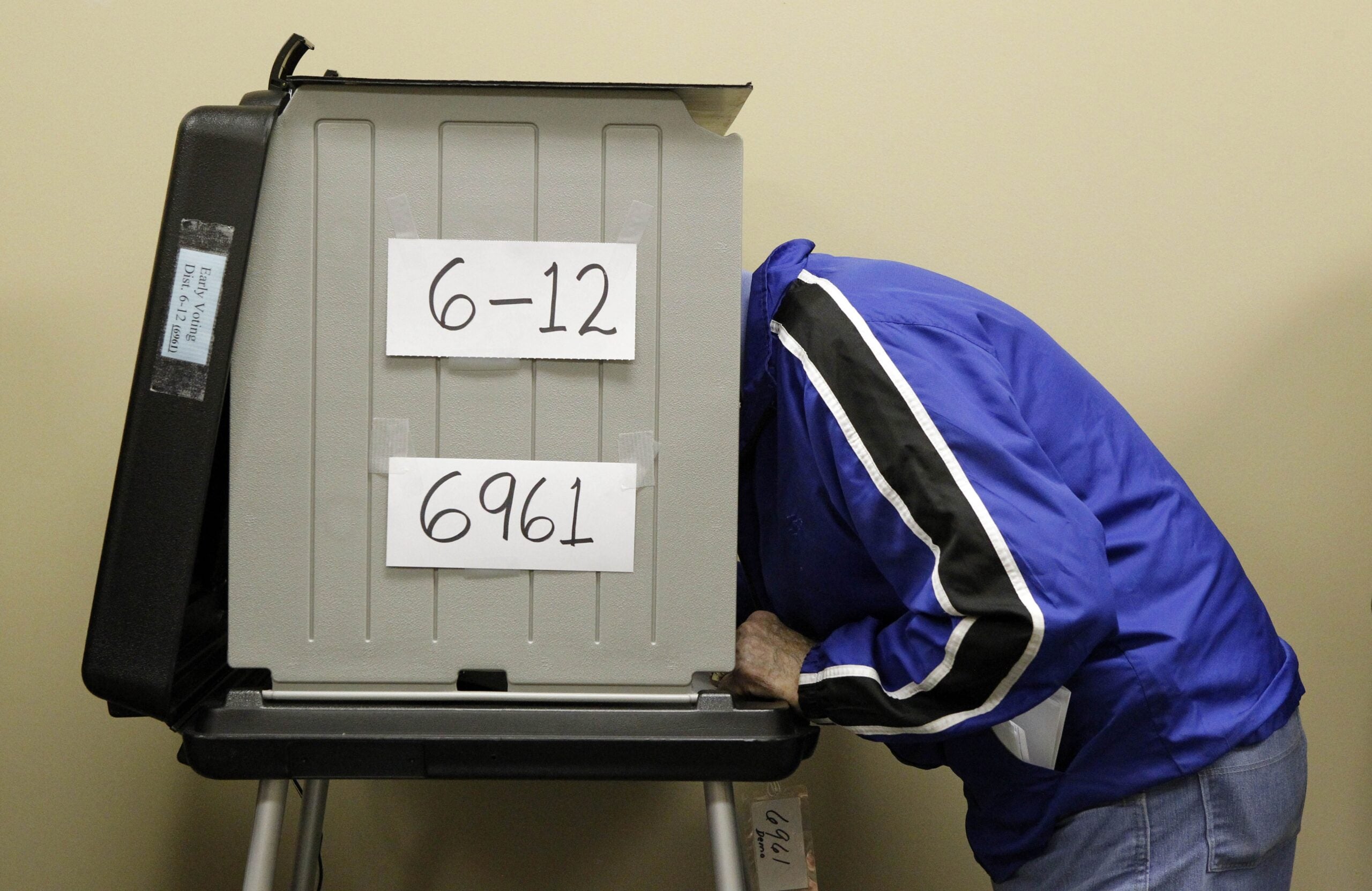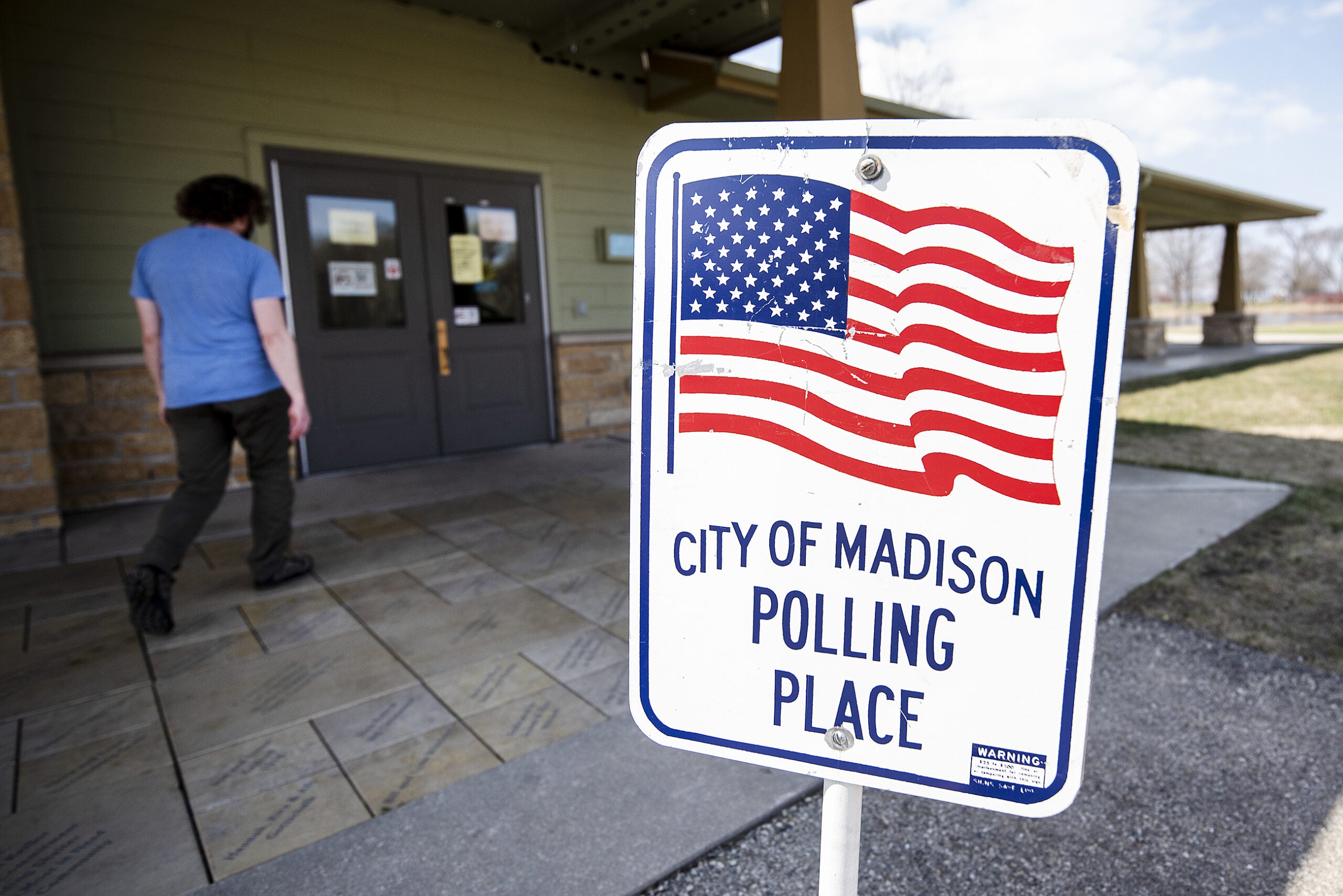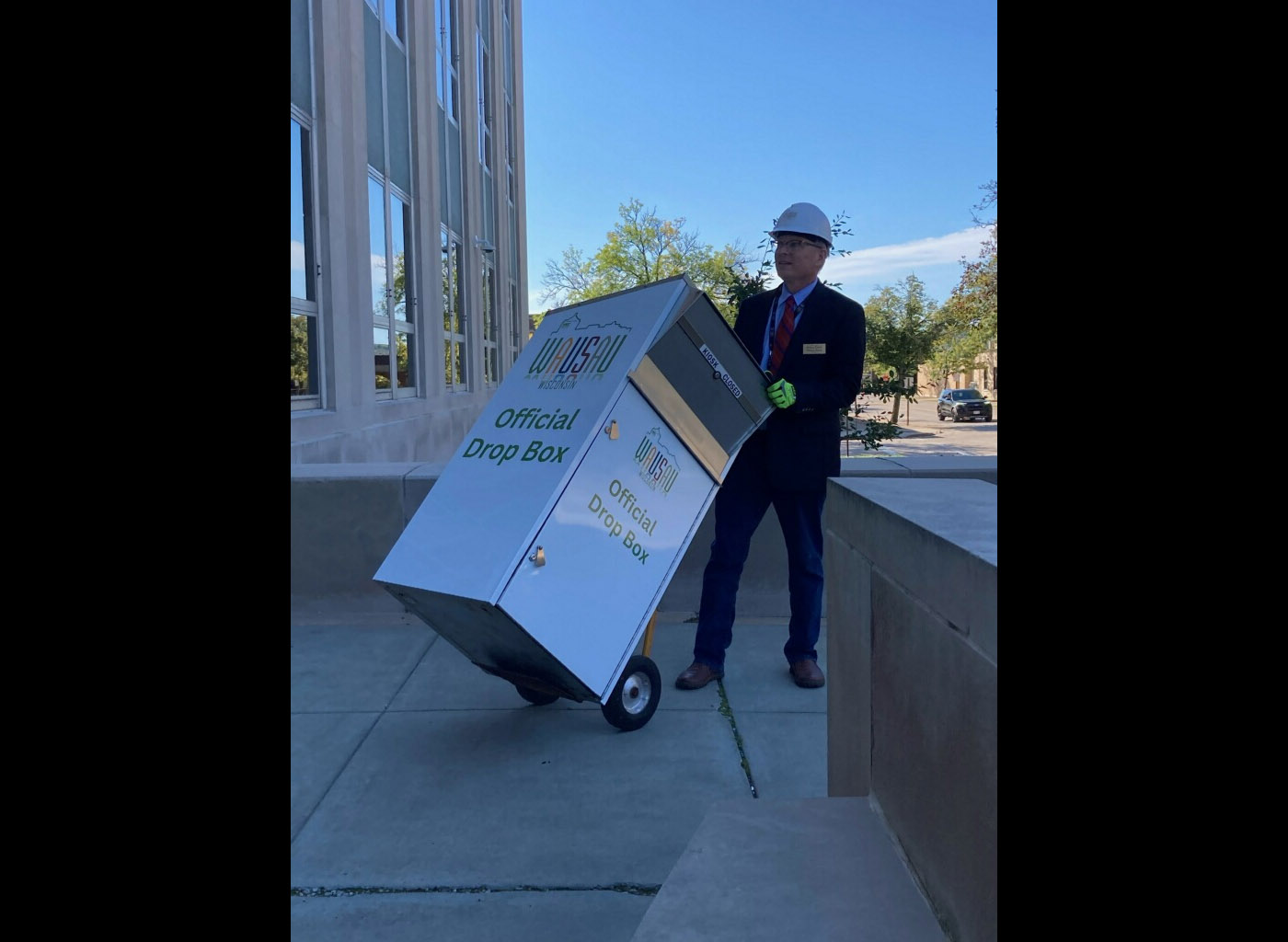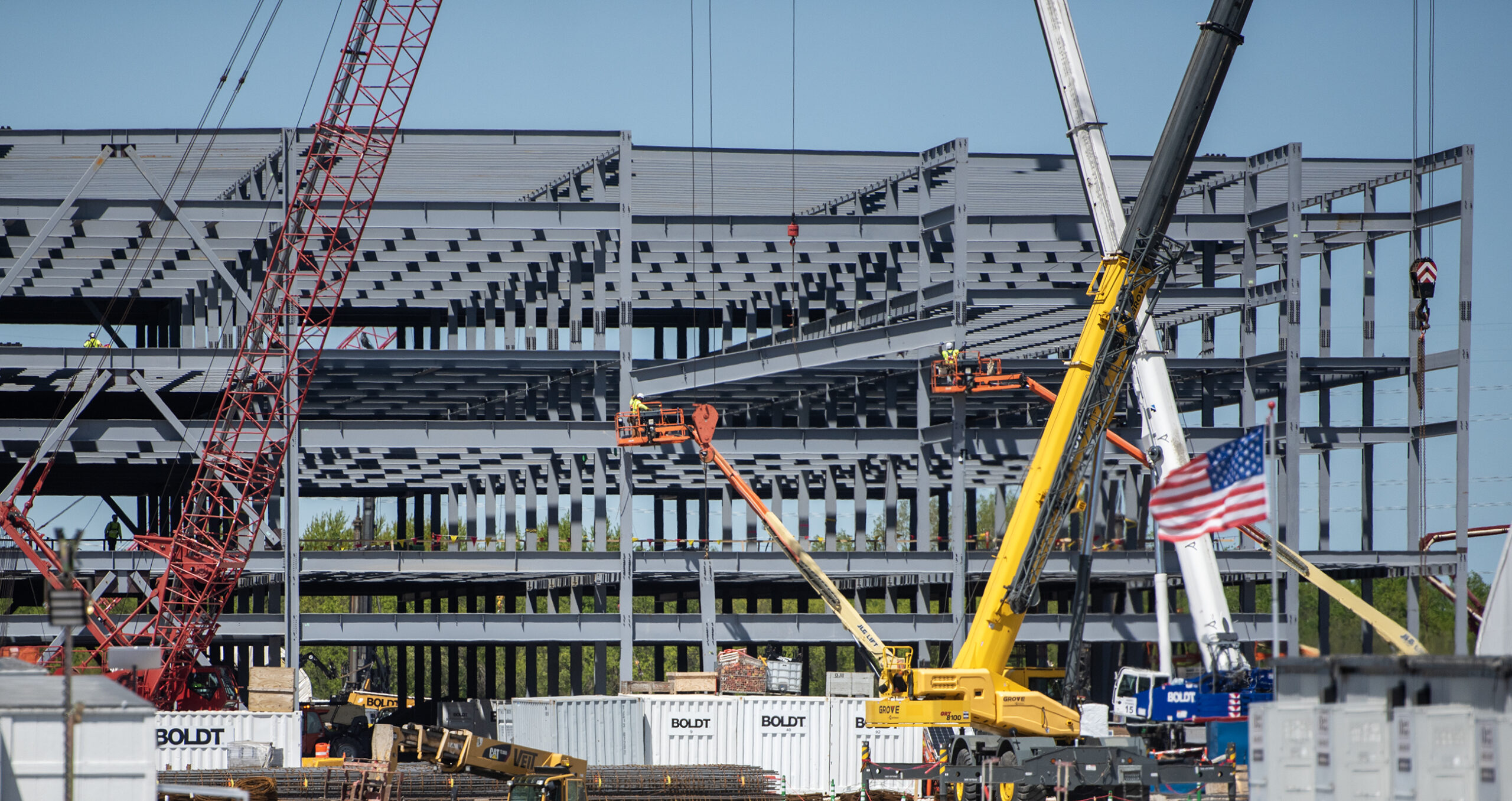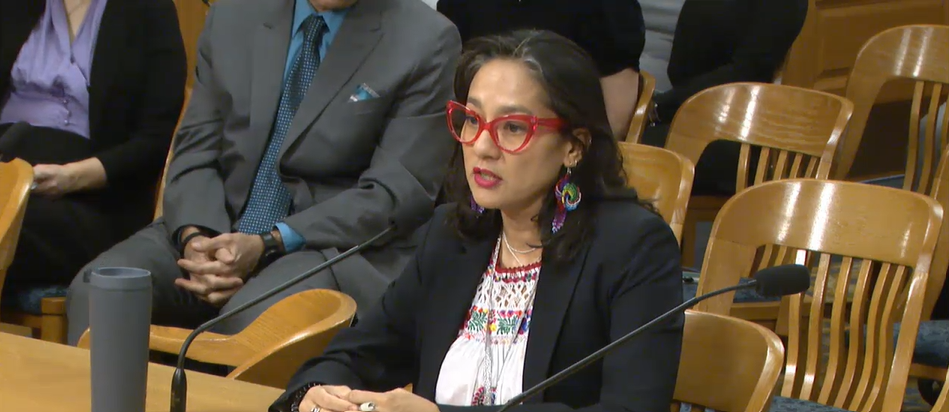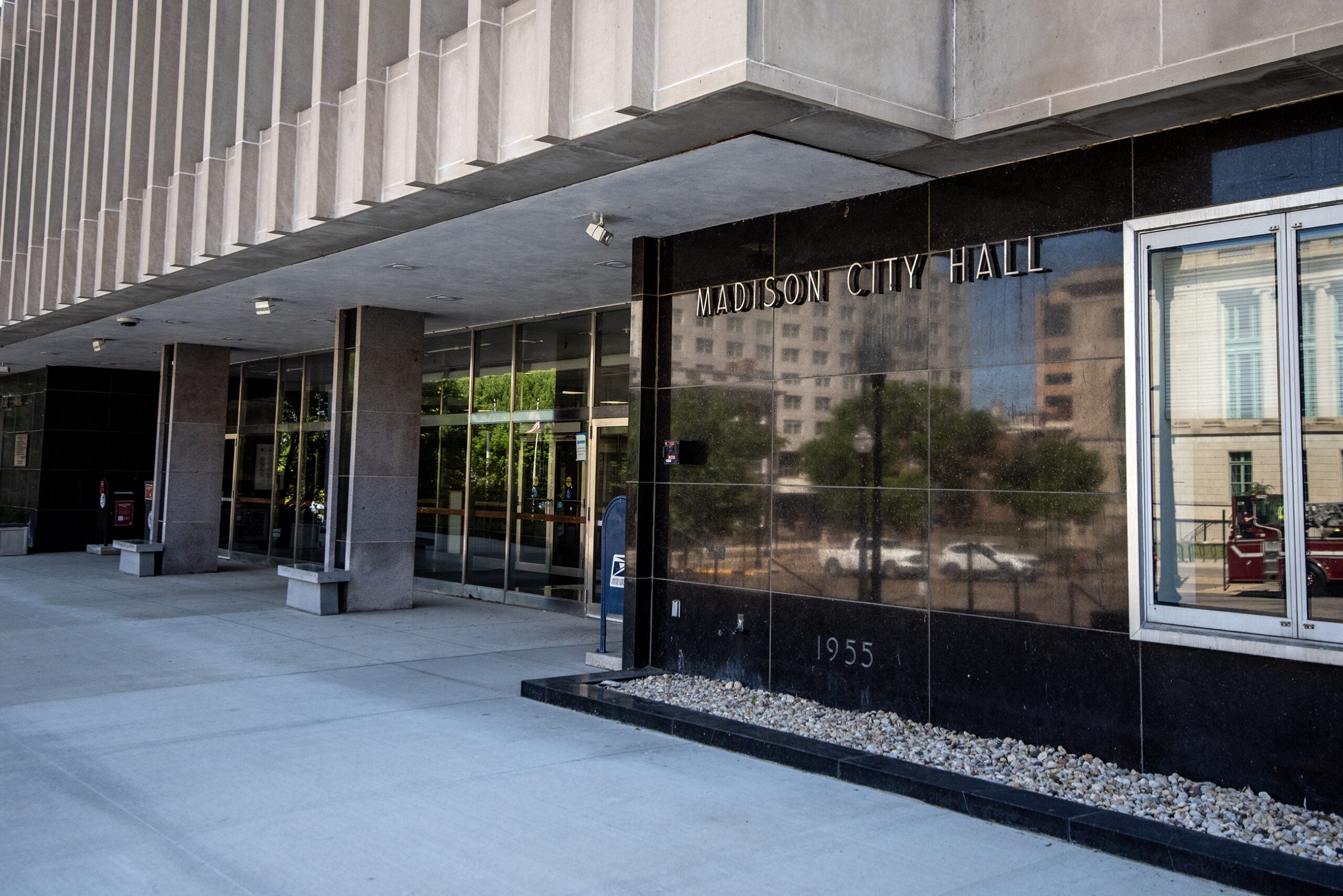As Election Day draws near, races for president and U.S. Senate have gripped voters’ attention. But in many parts of the state, races for local offices may be more of an afterthought.
In smaller cities, villages and towns, officials say they’re having a hard time recruiting people to run for local government.
At Greenwood City Hall in rural Clark County, four city council members, the mayor and a handful of department heads gathered for the monthly council meeting. They meet in a modest room not much bigger than the table they sit at.
Stay informed on the latest news
Sign up for WPR’s email newsletter.
The City of Greenwood’s mayor, city council and department heads hold the monthly city council meeting in a back room at the combined city hall and library. Rich Kremer/WPR
On the agenda? Possible locations for a new city garage, lawn mowing contracts for the cemetery and a discussion about whether cluttered yards are violating the local nuisance ordinance.
It’s not glamorous work, but Greenwood Mayor Jim Schecklman believes it’s important. That’s why he’s concerned about a lack of community interest in serving in city government.
He said it’s getting harder to recruit people to run for these offices.
“Two reasons: One is they don’t want to deal with the headache of making a decision and having other people blame them for something that didn’t go their way, but I think the most popular reason is they just don’t want to commit the time,” Schecklman said.
To encourage participation, the mayor said he and the council have scheduled meetings around school sporting events. Under a previous mayor the city also began paying $20 to each person who attends volunteer committee meetings.
Schecklman also tried to get more young people involved. He started a mayor’s youth council to get high school students excited about making an impact in their city. The objective was to get six students to plan, budget and build a dog park.
Schecklman sent a letter to the high school with his best pitch.
“You can make a difference in your community,” he wrote. “You can actually see something that you designed so when you’re driving past it one day you can look out and say, ‘I had a part of that.’ And it was disappointing because I got one person and it was my daughter, which who knows, honestly… she’s my daughter so she probably felt obligated.”
Declining participation in local government isn’t just an issue in Greenwood. A survey sponsored by the League of Wisconsin Municipalities and conducted by the Wisconsin Taxpayer Association found the issue is present throughout the state.
League Executive Director Jerry Deschane said they were surprised to find declining civic engagement is a problem throughout the state’s smaller cities and villages.
“Fifty-two percent of the cities and villages, overall, say it’s a problem, but in about two-thirds of cities and villages under 10,000 in population you’ve got little-or-no competition for board and council seats,” Deschane said. “In a lot of cases, too many cases, there’s simply a blank spot on the ballot because nobody’s interested.”
He said local government needs to adapt to the changing work and family demands of those who serve.
“But the other thing, to be real blunt with you, we need to do a better job and more thorough job of both telling our citizens why they have to be part of their government and, frankly, in a lot of cases just plain asking them to serve,” Deschane said.
In the Village of Marathon City, administrator Andy Kurtz said they see strong participation in the council and the village’s numerous committees. However, he thinks some people are getting turned off about serving in government by the circus surrounding major office elections.
Kurtz said local government is different and it actually gets work done.
“I would say they’d have far more impact at the local level,” Kurtz said of elected officials. “We have a board meeting and we decide we’re going to put up a stop sign, the stop sign goes up tomorrow. We decide we’re going to buy a squad car, you know, we’re buying a squad car very quickly.”
Deschane said it’s too early to say if declining participation means local government is in danger, but he worries the trend is heading in the wrong direction and says it needs to addressed sooner rather than later.
Wisconsin Public Radio, © Copyright 2024, Board of Regents of the University of Wisconsin System and Wisconsin Educational Communications Board.

